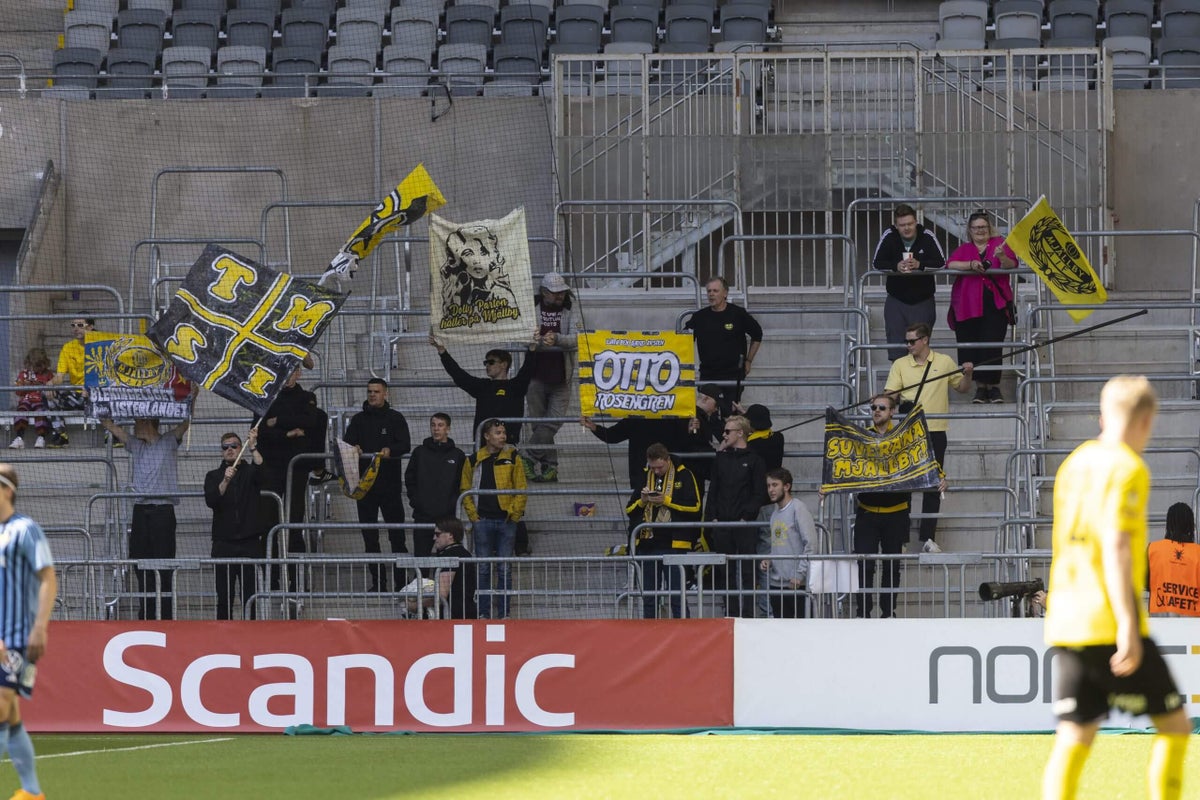In the wake of Sweden’s national side sinking to its lowest point in decades, there is, at least, likely to be a feel-good story in their domestic league this weekend.
Mjallby, who play in the southern fishing village of Hallevik — population of just 1,500 — are about to win the title. They are 11 points clear at the summit of the Allsvenskan with four matches remaining. It’s a case of when, rather than if, they will become the most unlikely champions of a European league since Leicester City in 2015-16. At that point, Mjallby were in the third division.
Scandinavia has thrown up a series of rags-to-riches stories in recent years. Midtjylland from Denmark and Bodo/Glimt from Norway have risen from relative obscurity to become admired across Europe.
Sweden was overdue for a similar tale. In a league that prides itself on its fan-owned ’51 per cent model’ and has produced more title winners (eight) than any other European league in the first decade of this century, Malmo had threatened to turn Sweden’s Allsvenskan into another predictable top flight, winning eight of the last 12 titles. Mjallby’s imminent success serves as the perfect antidote, partly because they are operating on a budget estimated to be around 15 per cent of Malmo’s.
And this is a miracle in two different ways.
First, it’s remarkable that a club like Mjallby are simply in the top half of the Allsvenskan in the first place. Their success is the consequence of an attitude based around the simple concept of ‘being the best at the things that are free’: having an identity, building good team spirit and preparing for matches thoroughly.
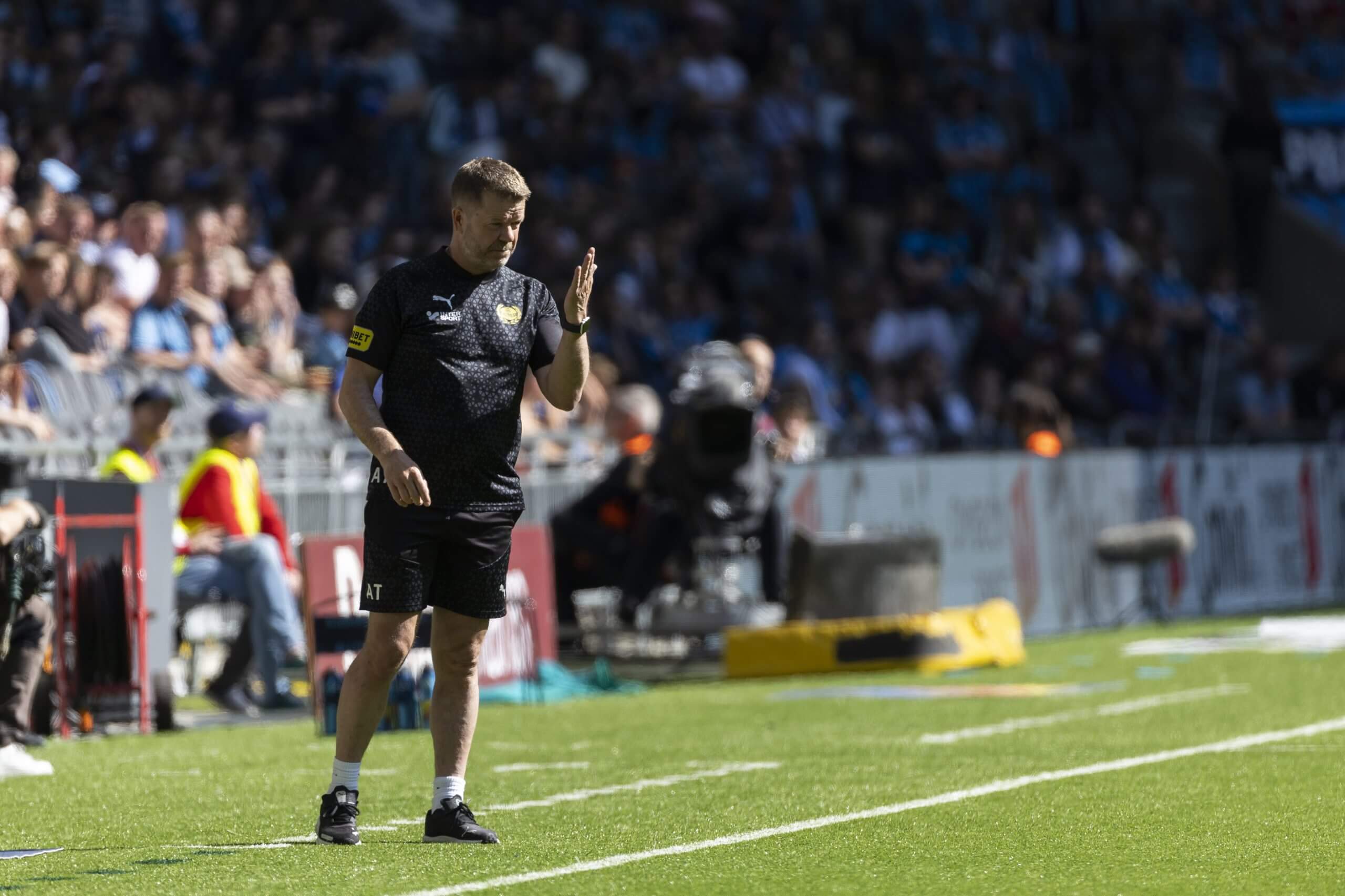
Mjallby’s head coach Anders Torstensson (Michael Campanella/Getty Images)
Their coach, 59-year-old Anders Torstensson, has dipped in and out of professional football over the past 20 years and is now in his third spell at the club. He is assisted by Karl Marius Aksum, a tactics guru who boasts a PhD in ‘visual perception in football’. A now-familiar emphasis on data-based recruitment has led them to make excellent signings from afar, such as Gambian attacker Abdoulie Manneh, and a realism about their status has resulted in them happily selling their best youngsters for considerable fees, reinvesting that in the squad.
But second, it’s remarkable that Mjallby are top considering their underlying numbers.
Using expected goals (xG), Mjallby have only the joint-seventh best numbers in the Allsvenskan. Malmo and Hacken, who account for the last five Swedish titles between them, have better xG numbers yet sit seventh and ninth in the table. This is a historic overperformance, as the graph below demonstrates.

As the graph shows, Mjallby’s return of 2.42 points per game would typically have been achieved by an xG difference of around 0.75 per game, rather than their rate of 0.18. In fact, their xG numbers are very similar to those of Vasteras last season, who were relegated, leaving coach Kalle Karlsson ruing “sitters, open goals, crazy stuff”.
So what’s the difference?
First, it’s worth working out at which end Mjallby are overperforming. In attack, they’re about 6.6 goals ‘up’ on what you would expect from the positions of their shots; a decent overachievement, but nothing particularly startling.
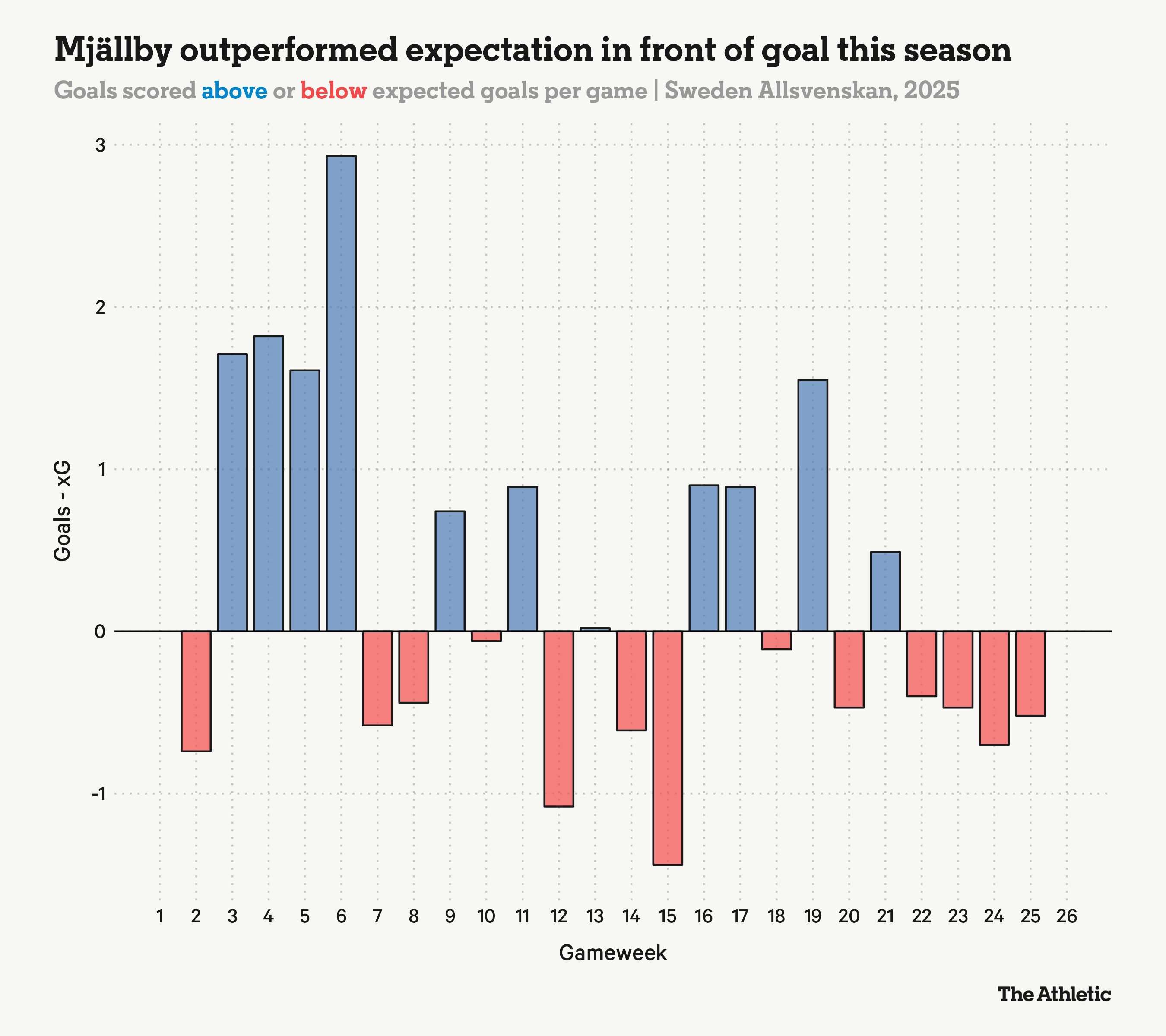
If you’d only watched Mjallby in recent weeks, you’d suspect they were overwhelmingly reliant on set pieces, as six of their last nine goals have been from this route, and another was a penalty. But this has been a relatively recent trend, since opponents have increasingly realised their quality and sat deep. After scoring from a set piece on the opening day, they subsequently had a run of 30 goals when none were from set pieces.
Mjallby play genuinely good football, usually in a 3-2-4-1 shape: a box midfield who play quick combinations, and two wide players who storm up and down, always arriving at the far post at the right time. Left-sided Elliot Stroud has thumped in goals from all sorts of angles, bringing to mind Alex Grimaldo’s contributions to an unlikely title-winning campaign at Bayer Leverkusen.
As well as creating a string of chances fired home from point-blank range, often from cutbacks, Mjallby have been particularly efficient at forcing high turnovers, then striking when the opposition defence is out of position. They’re getting unusually ‘clear’ shots at goal.
But where Mjallby have really overachieved is defensively. In that respect, they’ve allowed 35 goals’ worth of chances, but only actually conceded 17; just under half of what you would expect. Single-game xG numbers should be used cautiously, but in each of their last 17 league games, Mjallby have conceded fewer goals than their xG numbers would suggest.
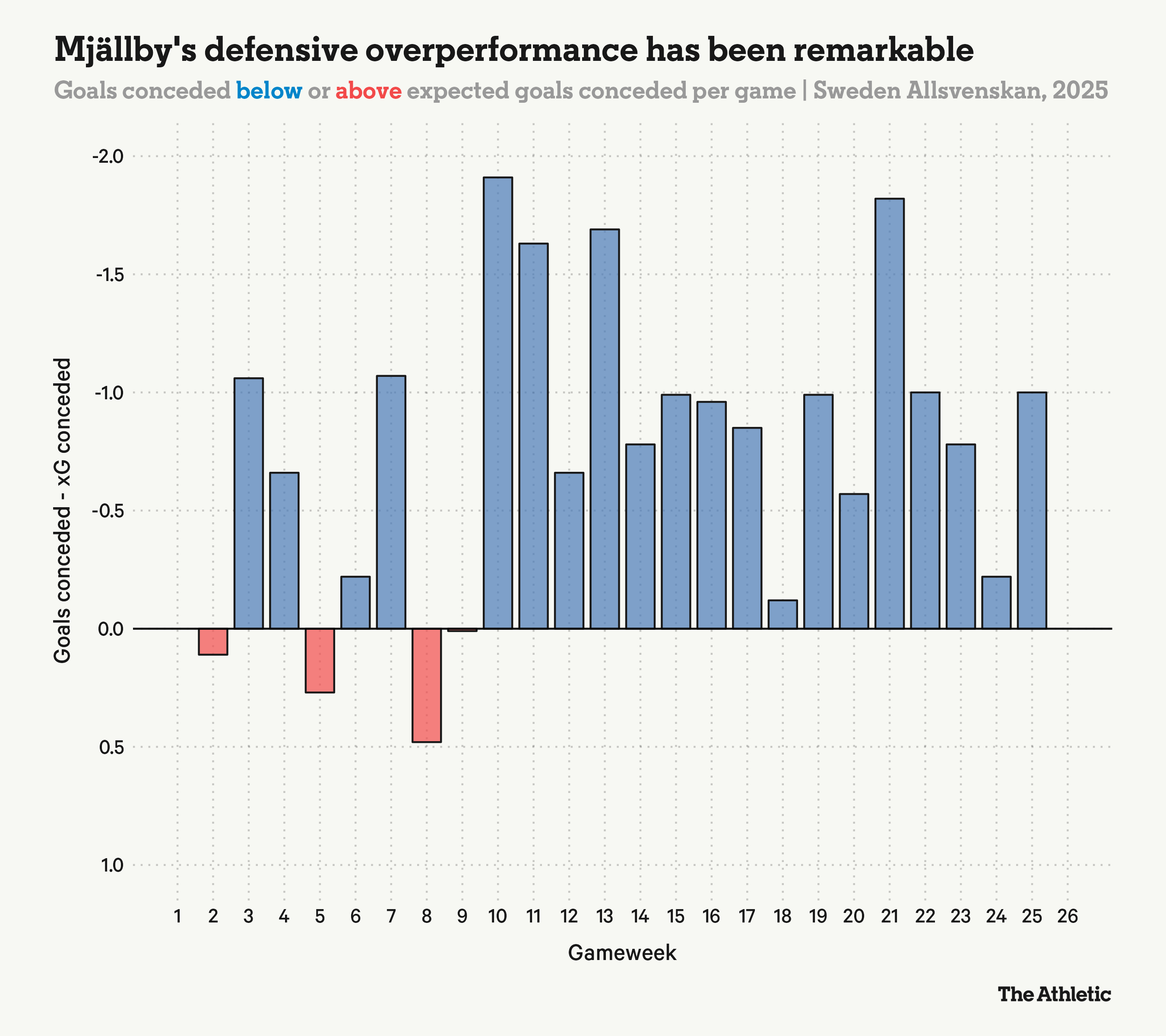
Part of this, undeniably, is about wayward opposition finishing, but there are two other notable things.
Mjallby are very compact without possession, particularly when defending deep. When attacks break down, Mjallby get their midfield line back into position incredibly quickly.
It’s rare to see the opposition attempting a shot when under severe pressure from multiple players. Some xG models are starting evolve, but the basic numbers, as they are, probably overestimate how good chances like this are, with so many players between the player taking the shot and the goal.

In addition, Mjallby have a truly outstanding goalkeeper. Noel Tornqvist, 23, is 6ft 6in (198cm) and notable for his Petr Cech-style protective headgear.
Tornqvist has received rave reviews for his distribution skills, as is increasingly common for promising young goalkeepers. But he’s also an excellent shot-stopper. In particular, he’s decisive in one-against-one situations, sprinting out of his goal to close down the shooter incredibly quickly, smothering shots quickly, such as this one against IFK Goteborg.
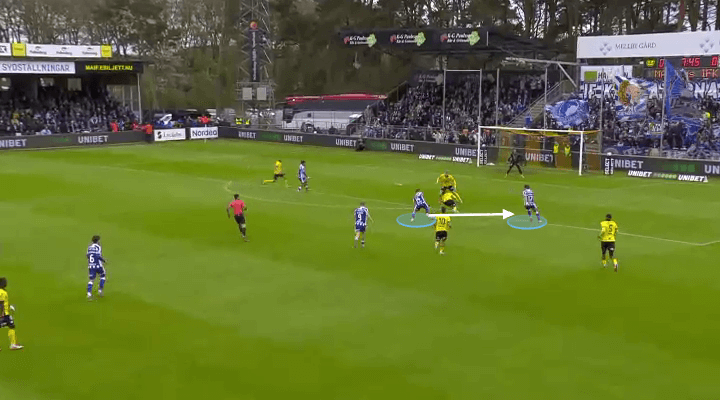
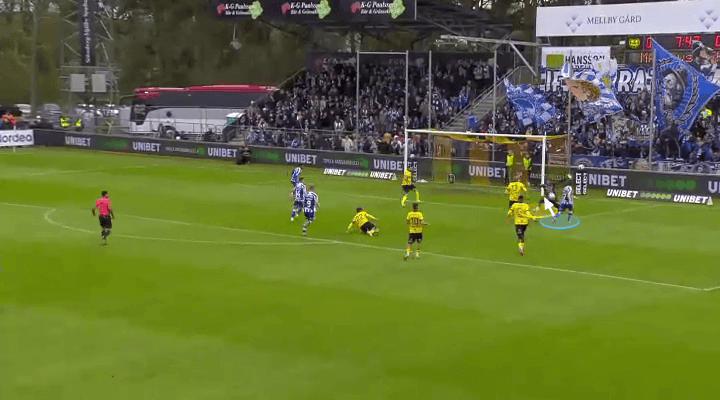
Only one goal all season — a long-range free kick — could reasonably be considered a Tornqvist error. He’s recently received a call-up to Sweden’s senior side after their long-serving No 1 Robin Olsen stood down. It’s no surprise that a bigger club has already snapped up Tornqvist: Cesc Fabregas’ Como, who bought him in August but loaned him back to Mjallby. He will move to Italy once the title celebrations are over.
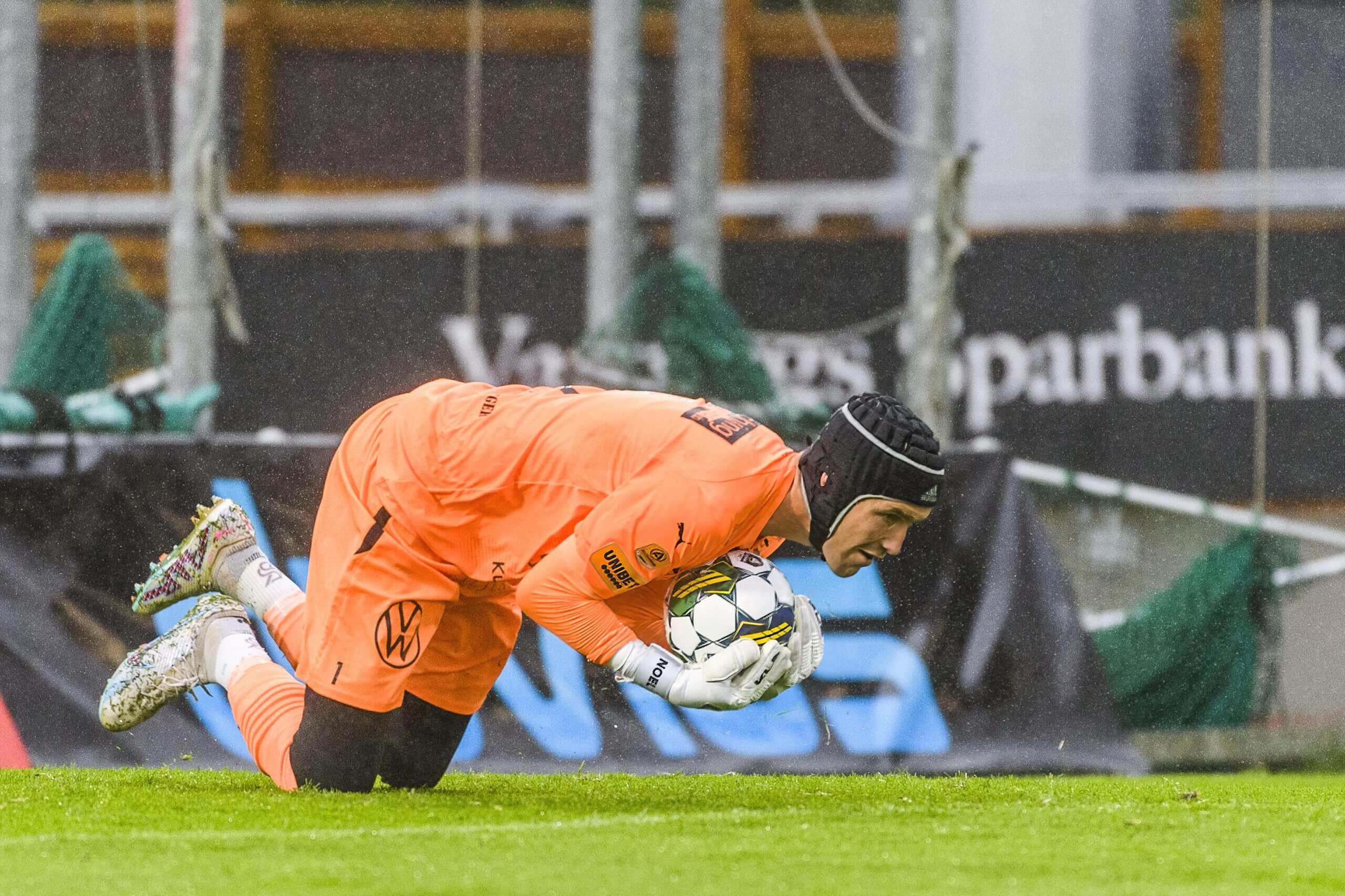
Goalkeeper Noel Tornqvist is heading to Serie A with Como soon (Gunnar Hoffsten/Getty Images)
It’s also worth pointing out that ‘game state’ comes into play. It helps that Mjallby have scored first in 21 of their 26 matches — the opposition have regularly been chasing the game, pushing men forward and trying to score against a packed Mjallby defence, while leaving their defence understaffed. Still, they have to put away the chances at one end and block them at the other. Their logic-defying results have attracted plenty of praise — and a little confusion — from their rivals.
“Mjallby are a really good side. They’ve been absolutely fantastic, they’ve exceeded all expectations,” said Kim Hellberg, manager of second-placed Hammarby. “It’s also a team that has got an exceptional amount out of what they’ve created. If you look at the underlying numbers, they’ve been overperforming quite a lot.”
If Hellberg’s side don’t win a Stockholm derby against AIK on Sunday, the title will be heading to the village of Hallevik, regardless of Mjallby’s final four results. But there’s still an incentive for them to keep on winning: five more points will bring the highest points total in Allsvenskan history. If they break that record, it’s because they seem to have broken expected goals.
